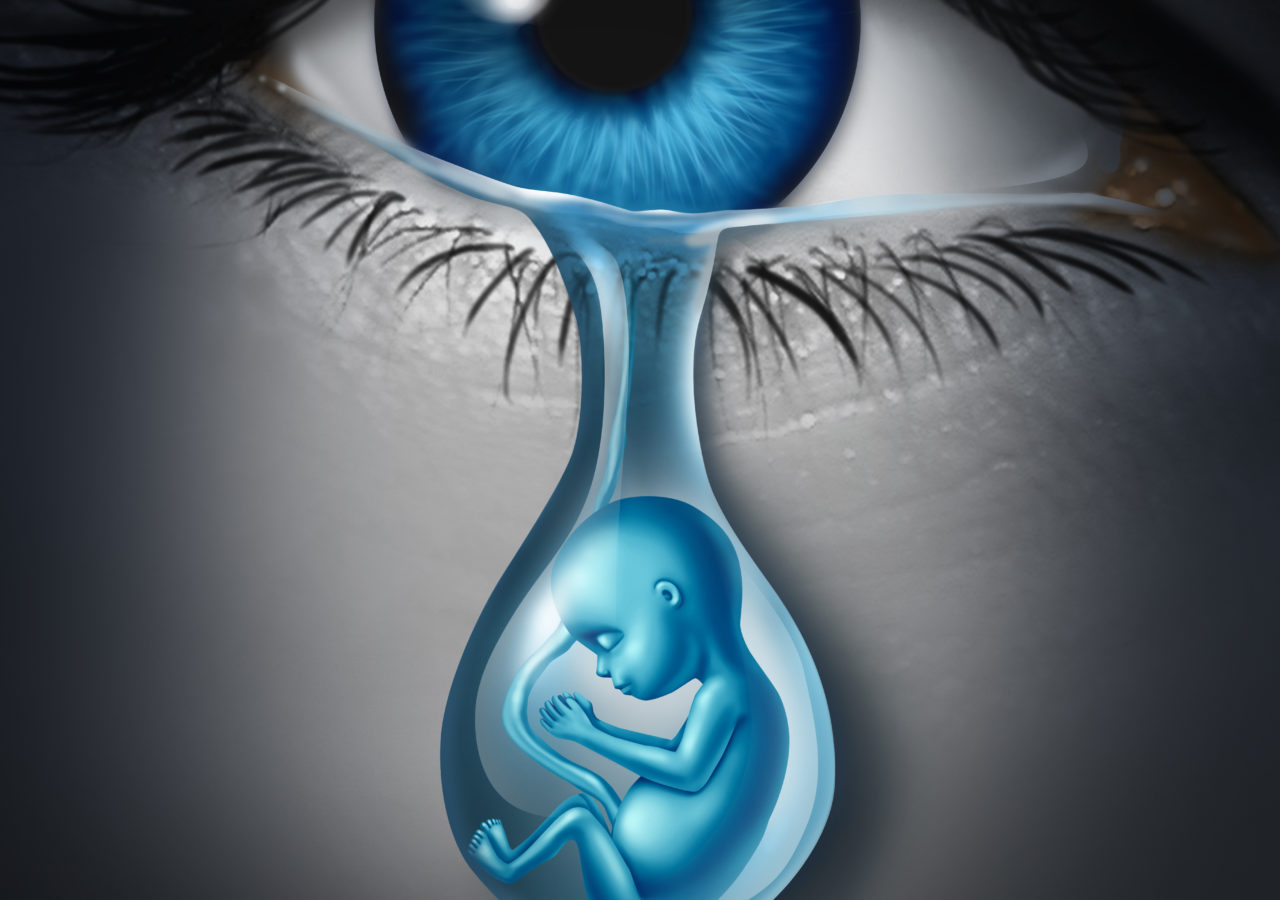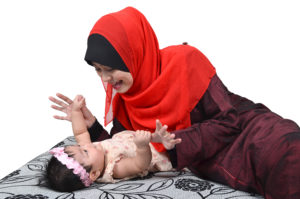In the UK, Perinatal mental health problems affect between 10 to 20% of women during pregnancy and the first year after having a baby. This can present challenges for the woman affected, the baby and wider family. In this article we explore the role of Aliya Merali, a Specialist Perinatal Occupational Therapist working in a mother and baby unit in Hertfordshire. Aliya works with women from pregnancy until 1 year after their babies are born.
Perinatal occupational therapists are health professionals who can provide tailored support during this time of transition when women find themselves more vulnerable to mental health difficulties.
1- Aliya, tell us a bit about your role and how you started doing this
Women who come to the unit are struggling with their mental health which may be affecting their day-to-day life. They may be struggling with are postpartum depression, postpartum psychosis, anxiety, perinatal obsessive compulsive disorder or even a relapse in their mental health.
As a result of the challenges with their mental health, they may be struggling with self-care occupations such as showering, getting dressed, eating or their sleep pattern may be affected. They may even find doing their productive occupations difficult such as preparing meals, returning to work, shopping and housework.
There is no doubt that having a baby is a big life change and sometimes it can be a difficult adjustment and women may feel they have lost themselves in the process of becoming a mother and find their routine is mostly centred on caring for their baby.
Women may neglect themselves and struggle to pursue their own interests, feel isolated and if they are struggling with their mental health, this can have an impact on their relationship with their husbands, families and most important of all with their babies.
As an Occupational Therapist, we take a holistic approach and try to understand her strengths, her sense of identity, explore what her routine is like, her feelings about motherhood and her baby. We also discuss her beliefs and expectations about her roles as a mother, wife, family member or any other roles that are important to her, her interests and motivations as well as what her support network is like i.e. whether she has a supportive or unsupportive network and activities that she identifies important for her health and well-being.
We then set collaborative practical occupational therapy goals which are meaningful to her and examples of what an occupational therapy goal might look like:
- I will make time for myself and take care of my personal needs
- I will spend time bonding with my baby
- I will create a routine which reflects a balance between my needs and the family’s needs.
We then make action steps on how she will achieve her goals. The practical interventions are personalised and delivered either individually and/or in groups. This is what some of the practical interventions may look like:
- Establish with mums a healthy daily routine that has an occupational balance and incorporate activities that improve mental health and well-being.
- Promote attachment to their babies using sensory activities or perform sensory assessments for mums with difficulties processing sensory input.
- Promote postnatal attachment and bonding through mother and baby activities.
- Support them as they navigate their new identity and role as a mum and discuss about keeping a balance between other roles and support them to return to work and discuss about maintaining a work/life balance.
- Support women to access the wider community with baby through graded exposure, building social networks and practical support.
- Provide psychoeducation to mothers, fathers and family about the impact of mental health.
I started working in mental health six years ago and specialised in perinatal mental health three years ago. My passion in mental health comes from a personal experience as my father suffered from bipolar depression and I saw the challenges that he and us as a family faced. There was a lot of stigma around mental health when I was growing up as a child and it was a taboo topic and growing up I felt that my father was judged very negatively and as a family it was very hard to explain to people about his challenges and due to the stigma around mental health I felt that this was a topic that was hushed and not spoken about in public. This is what inspired me to become an Occupational Therapist.
Growing up in Kenya I saw that women in our community did not have a voice, many women had to suffer in silence and could not speak up about what they were going through and if they did speak up, it was in whispers and many of them were afraid to voice their thoughts and feelings due to fear of being judged and this inspired my interest in perinatal mental health.
I also recall when I became a mother myself, I found the transition to motherhood hard as it was a new territory for me and I was living in Spain when I became a mother and felt very isolated. I cannot emphasise enough the value of developing sincere connections with other women.
2- Do you find a lot of Muslim women suffer with mental health problems during pregnancy? And what differentiates your Muslim patients from other patients?
From my experience I have worked with Muslim women struggling with their mental health during their pregnancy and after the birth of their babies but unfortunately many of them do not seek help due to fear of being judged, fear of how their families will respond and fear that their babies will be taken away by social services. There may also be a lack of trust in the system or services. Some Muslim women do not have words in their language to describe the symptoms of mental health and they speak about it as if it was due to black magic. I have also found that their families can be quite closed and hesitant to be open about their feelings, possibly due to how they have been brought up.
There continues to be a lot of stigma in our communities around mental health although over the past years a lot of positive work has been done by some members of our community and there is now an increased awareness but we still have a lot of work to do to promote awareness in mental health and find ways to reassure women who are afraid to reach out for help. There has been a lot of research showing that many Muslim women are not getting the help they need due to barriers in accessing mental health. From my experience in the community perinatal team and in the mother and baby unit, I have seen women get better and make a positive recovery after receiving treatment, support and therapeutic interventions. I would also like to highlight that sometimes the focus can be only on mothers but we need to make an effort to reach out to fathers too so they are able to get the necessary help as well.
I have found that women from other backgrounds are more open about their mental health and are willing to seek help. I read a book recently called The Key to Happiness by Meik Wiking and it discussed about the U.K ranking first when it comes to reducing stigma and increasing awareness, according to the Economist Intelligence Unit’s Mental Integration Index.
3- Do you think women have insight into their own symptoms and can recognise their struggle?
Yes, they can. Women may experience baby blues after giving birth but if those feelings of emptiness and sadness persist longer or they start having suicidal thoughts or feeling negatively towards their baby or don’t feel they are bonding with their baby or that they start neglecting themselves, it could be postnatal depression. Women can get better with treatment and talking therapy. I would also like to mention that postpartum psychosis is a condition that affects 1 in 1000 women and it can be triggered by stress, genetics, relapse in mental health, traumatic birth experiences or even lack of sleep. Women may notice that they are acting out of the blue, unable to sleep for days and experience hallucinations or feel that they are seeing, hearing, smelling or feeling things that aren’t there and that their mind is working very fast and they feel high. If you suffer with these features, please get help, it is a psychiatric emergency that is treatable and women get better after treatment and return to normal. It can happen to any woman. I have met doctors, nurses, highly qualified professionals who were admitted with postpartum psychosis and they all got better.
4- What would you advise husbands or families of women if they suspect a pregnant loved one is struggling?
I would advise husbands and families that if you see that your wife, daughter or sister is not her usual self and perhaps is expressing feelings of sadness or suicidal thoughts that she does not want to live and does not feel that she is a good mum or you see her acting out of the blue and you feel concerned about her well-being, please go and seek help. I can assure you that with the right help they will get better. There is a website called mentalhealth.gov that gives ideas on how to talk about mental health and helps families identify signs when someone is struggling with their mental health. Even though it is an American source, I have found it valuable as they give ideas on what to ask and what to say and what to look out for. In the UK, the NHS has invested millions of pounds in perinatal mental health services. I also would like to mention that fathers can be forgotten and the emphasis tends to be on women and their babies. I would like to highlight that fathers can also struggle with their mental health and I cannot over emphasise the value of reaching out, connecting and talking about your feelings. There are support groups for fathers whose wives are struggling with their mental health. I think it is really important that we ask the question sincerely -How are you really doing?
5- How can women access perinatal mental health support?
Women can get referred to the community perinatal team through a professional such as GP, midwife, health visitor or can contact them directly for further support. They will have a consultation with a specialist doctor, advice about medication and its safety in pregnancy and breastfeeding, specialist psychological therapies and additional support from specialist perinatal workers. If they do not require specialist support, there is an organisation called Families First which can also be helpful.
Thank you Aliya for sharing your valuable work, the impact it can have and how to access these services for ourselves or our loved ones. Finally, can you leave our readers with any resources, links to organisations or books that might prove beneficial?
There is a wealth of resources for mothers and fathers:
- Support for mums and families | Maternal Mental Health Alliance
- PND awareness and support Home – PANDAS Foundation UK
- Postnatal depression – A self help guide – Postnatal Depression A4 2pdf (maternalmentalhealthalliance.org)
- Gaining control of your life after having a baby- Post-Natal-Gaining Control (maternalmentalhealthalliance.org)
- Action on Post-partum psychosis –Action on Postpartum Psychosis | National charity supporting women and families affected by postpartum psychosis (app-network.org)
- Muslim Women’s Network- MWN Helpline UK
I think these books are an amazing read as well:
- Mama Rising Discovering the New You Through Motherhood by Amy Taylor-Kabbaz
- What No One Tells You -A guide to Your Emotions from Pregnancy to Motherhood by Alexandra Sacks and Catherine Birndorf
- The Postnatal Depletion Cure by Dr Oscar Serrallach



